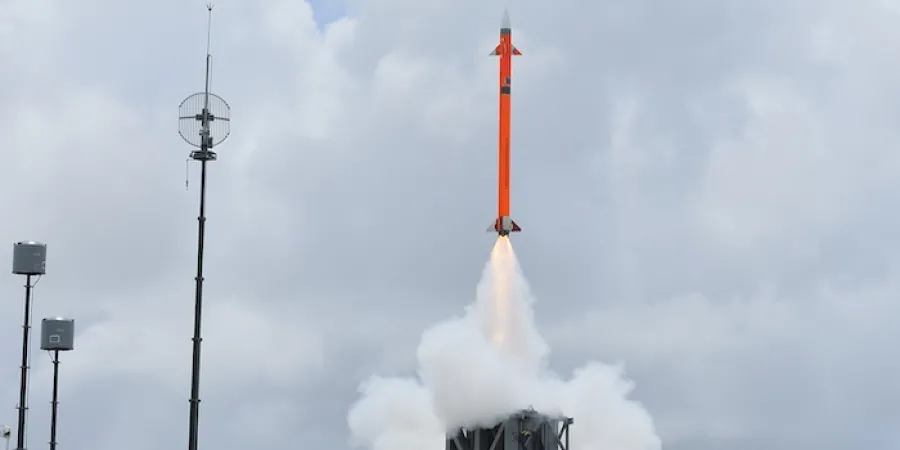IAI Signs $50M Follow-Up MRSAM Deal with India
Under the agreement, IAI will provide the Indian Navy and India’s MDL Shipyard a range of maintenance and other services for sub-systems of the naval air defense system
IsraelDefense
| 17/07/2019
Israel Aerospace Industries (IAI) announced Wednesday it has signed a $50 million follow-up agreement to provide the Indian Navy and MDL Shipyard with complementary Naval MRSAM (Medium Range Surface-to-Air Missile) systems.
The agreement involves a range of maintenance and other services for sub-systems of the advanced air defense system (ADS).
Boaz Levi, Executive Vice President and General Manager of Systems, Missiles & Space Group said, “IAI’s partnership and strong relationship with the Indian Navy is reflected in all activities with our partners in India. Only recently we have successfully completed a multi-system trial in India that demonstrated the advanced technological centralized management capabilities of the air defense system to the utmost satisfaction of our Indian partners. This contract is a breakthrough as it advances us from system development and delivery to looking after the operational needs of our customers.”
The MRSAM family is an operational air-defense system used by Israel’s Navy as well as by India’s naval, air and ground forces. It has been developed by IAI in collaboration with Israel’s Ministry of defense, India’s Defense Research and Development Organization (DRDO), IAI’s ELTA group, RAFAEL, and additional industries in India and Israel.
To date, more than $6 billion worth of MRSAM systems have been sold worldwide. The ADS provides broad as well as topical defense against a range of assault air, marine and ground threats. MRSAM comprises several advanced systems, including a digital radar, command and control, launchers, and interceptors with advanced homing seekers.
Under the agreement, IAI will provide the Indian Navy and India’s MDL Shipyard a range of maintenance and other services for sub-systems of the naval air defense system
Israel Aerospace Industries (IAI) announced Wednesday it has signed a $50 million follow-up agreement to provide the Indian Navy and MDL Shipyard with complementary Naval MRSAM (Medium Range Surface-to-Air Missile) systems.
The agreement involves a range of maintenance and other services for sub-systems of the advanced air defense system (ADS).
Boaz Levi, Executive Vice President and General Manager of Systems, Missiles & Space Group said, “IAI’s partnership and strong relationship with the Indian Navy is reflected in all activities with our partners in India. Only recently we have successfully completed a multi-system trial in India that demonstrated the advanced technological centralized management capabilities of the air defense system to the utmost satisfaction of our Indian partners. This contract is a breakthrough as it advances us from system development and delivery to looking after the operational needs of our customers.”
The MRSAM family is an operational air-defense system used by Israel’s Navy as well as by India’s naval, air and ground forces. It has been developed by IAI in collaboration with Israel’s Ministry of defense, India’s Defense Research and Development Organization (DRDO), IAI’s ELTA group, RAFAEL, and additional industries in India and Israel.
To date, more than $6 billion worth of MRSAM systems have been sold worldwide. The ADS provides broad as well as topical defense against a range of assault air, marine and ground threats. MRSAM comprises several advanced systems, including a digital radar, command and control, launchers, and interceptors with advanced homing seekers.



